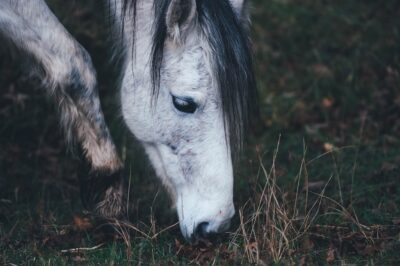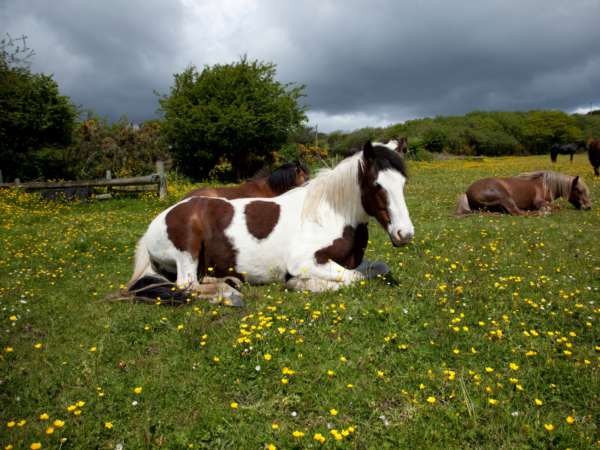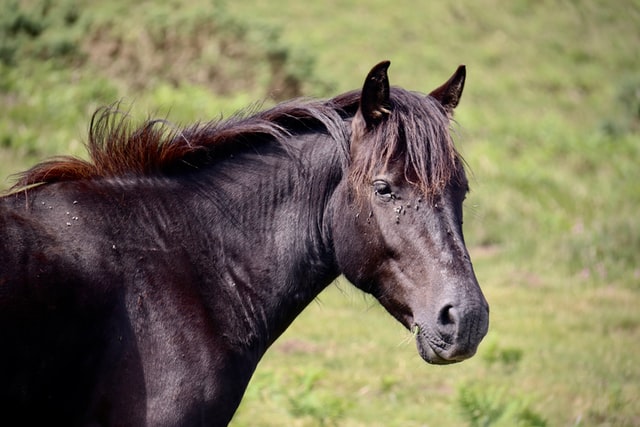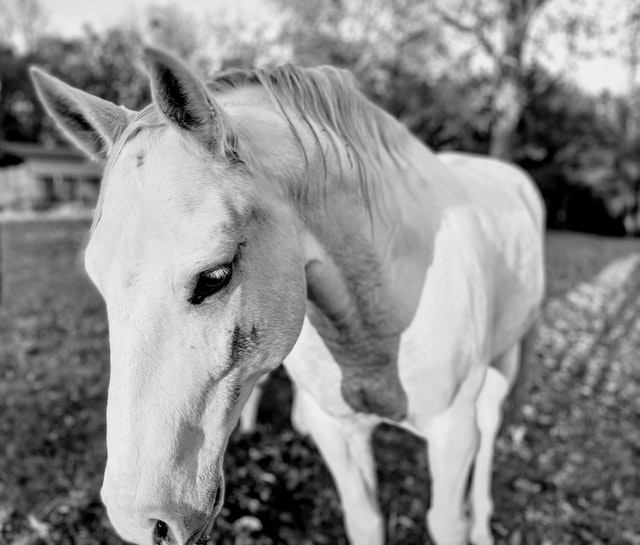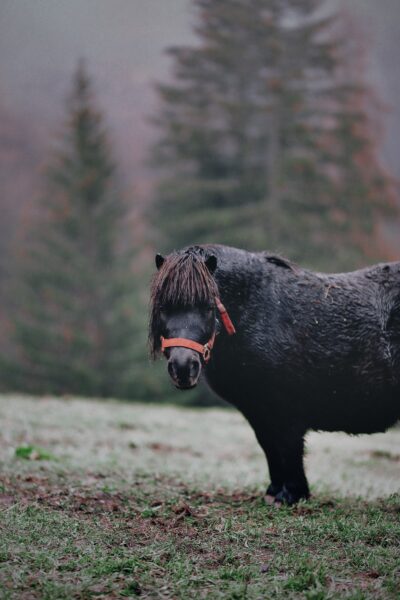How Much Water Do Horses Drink?
Just like with humans, water is the most important “nutrient” a horse needs to survive.
In this series on equine nutrition, we’re starting with water.
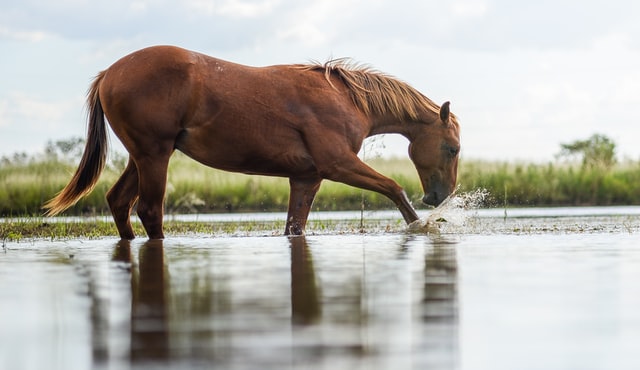
In an adult horse, 65-75% of their body is water, and 75-80% of a foal’s body is water.
Not only do they require water for healthy blood and to remove toxins from their body in urine, they need it for proper digestion.
If a horse does not have access to water, he will stop eating as an evolutionary adaptation to prevent himself colicing.
In average a horse in light work will lose:
- 18% of their water in urine
- 51% of their water in manure
- 31% of their water in sweat and respiration
The severity of the work they’re doing can increase their water requirements from 20-300% due to increased losses in sweat and respiration.

How Much Water Do Horses Drink?
Depending on a number of factors, horses will typically drink between 5 and 10 gallons per day.
Things that can influence this amount are:
- ambient outdoor temperatures
- internal temperature of the horse
- level of exercise
- type of feed
- increases losses due to diarrhea
Just like with humans, the hotter it is outside, the more water a horse will drink. This is due to increased water loss from sweating.
A rise in environmental temperature from 15 to 20% Celsius increases the water requirement of horses by 15 to 20%.
Conversely, in Winter horses tend to drink less. Drinking cold water during cold weather can lower the body temperature too much so horses will naturally drink less water.
Another factor in drinking water in the Winter is if a horse has a broken or cracked tooth, that cold water is painful and can discourage them from drinking well.
This reduced amount of drinking in the Winter is one of the reasons they tend to colic during the change in seasons.
Where Do Horses Get Water From?
In addition to the fresh water we give them, horses also get a small amount of water from their forage and grain.
Fresh, young grass will obviously have a higher water content than dried hay or grain.
Fresh grass can be up to 75-80% water, which means they’ll need to drink less fresh water to meet their requirements.
However, horses on alfalfa will require more water than horses on other types of grass or hay because of alfalfa’s high nitrogen content.
The body will work extra to eliminate the excess nitrogen to prevent an imbalance, which means the horse will urinate more and subsequently drink more water.
What Happens If a Horse Doesn’t Get Enough Water?
When a horse can’t drink the 5-10 gallons a day he needs, dehydration will set in.
A healthy horse can go 5-6 days without water, however signs of dehydration will appear in 2-3 days.
When the horse’s fluid loss exceeds 5% of this body (6 gallons in a 1000 lb animal) you’ll begin to see signs of dehydration.
Always provide electrolytes and a salt block for your horse.
What Are The Signs of Dehydration in Horses?
- An elevated heart rate of 60+ beats per minute in a calm horse
- Signs of colic
- Pink or blue gums
- Slow capillary refill time
- Tenting skin
If a horse’s gums are pink it means they have a reduced blood flow, and if they are blue they are already in shock and you should call your vet immediately.
Capillary refill time is when you push your thumb onto your horse’s gums. Where you pressed should be white, but bounce back to pink or red within a second or two.
To test your horse’s hydration, you can “tent the skin” which means pinching the skin away from the horse just in front of the shoulder.
The skin where you’ve pinched should bounce back immediately or within seconds. If it doesn’t your horse is dehydrated.
NOTE: this is also a good thing to try when going to look at a horse for sale, because some shady horse dealers will dehydrate a horse on purpose to make him more docile. For more ideas, check out my post on 52 things to ask when you’re buying a horse.

Lauren is an internationally published author, trainer, and has helped hundreds of horse-rider combinations create lasting bonds and the success they desire. Check out Lauren’s incredible story: From horse-crazy girl to international equine educator. Or if you want to send Lauren a quick message, check out her contact page here.
